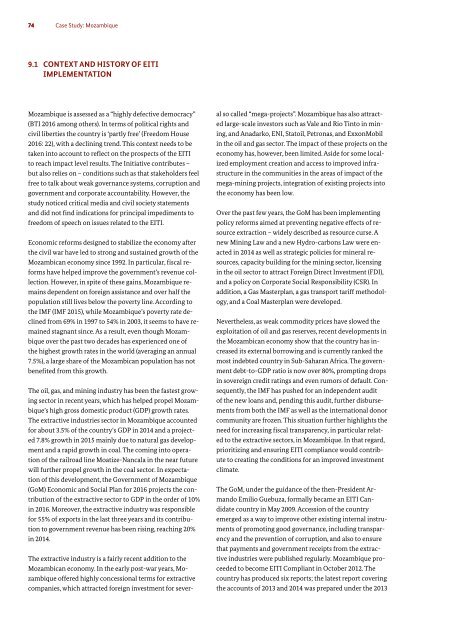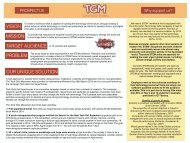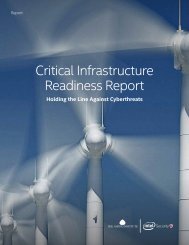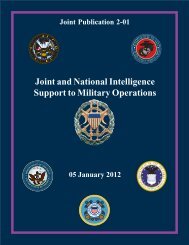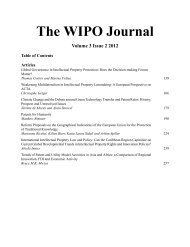Transparency Initiative (EITI)
2eoch1l
2eoch1l
You also want an ePaper? Increase the reach of your titles
YUMPU automatically turns print PDFs into web optimized ePapers that Google loves.
74 Case Study: Mozambique<br />
9.1 CONTEXT AND HISTORY OF <strong>EITI</strong><br />
IMPLEMENTATION<br />
Mozambique is assessed as a “highly defective democracy”<br />
(BTI 2016 among others). In terms of political rights and<br />
civil liberties the country is ‘partly free’ (Freedom House<br />
2016: 22), with a declining trend. This context needs to be<br />
taken into account to reflect on the prospects of the <strong>EITI</strong><br />
to reach impact level results. The <strong>Initiative</strong> contributes –<br />
but also relies on – conditions such as that stakeholders feel<br />
free to talk about weak governance systems, corruption and<br />
government and corporate accountability. However, the<br />
study noticed critical media and civil society statements<br />
and did not find indications for principal impediments to<br />
freedom of speech on issues related to the <strong>EITI</strong>.<br />
Economic reforms designed to stabilize the economy after<br />
the civil war have led to strong and sustained growth of the<br />
Mozambican economy since 1992. In particular, fiscal reforms<br />
have helped improve the government’s revenue collection.<br />
However, in spite of these gains, Mozambique remains<br />
dependent on foreign assistance and over half the<br />
population still lives below the poverty line. According to<br />
the IMF (IMF 2015), while Mozambique’s poverty rate declined<br />
from 69% in 1997 to 54% in 2003, it seems to have remained<br />
stagnant since. As a result, even though Mozambique<br />
over the past two decades has experienced one of<br />
the highest growth rates in the world (averaging an annual<br />
7.5%), a large share of the Mozambican population has not<br />
benefited from this growth.<br />
The oil, gas, and mining industry has been the fastest growing<br />
sector in recent years, which has helped propel Mozambique’s<br />
high gross domestic product (GDP) growth rates.<br />
The extractive industries sector in Mozambique accounted<br />
for about 3.5% of the country's GDP in 2014 and a projected<br />
7.8% growth in 2015 mainly due to natural gas development<br />
and a rapid growth in coal. The coming into operation<br />
of the railroad line Moatize-Nancala in the near future<br />
will further propel growth in the coal sector. In expectation<br />
of this development, the Government of Mozambique<br />
(GoM) Economic and Social Plan for 2016 projects the contribution<br />
of the extractive sector to GDP in the order of 10%<br />
in 2016. Moreover, the extractive industry was responsible<br />
for 55% of exports in the last three years and its contribution<br />
to government revenue has been rising, reaching 20%<br />
in 2014.<br />
The extractive industry is a fairly recent addition to the<br />
Mozambican economy. In the early post-war years, Mozambique<br />
offered highly concessional terms for extractive<br />
companies, which attracted foreign investment for several<br />
so called “mega-projects”. Mozambique has also attracted<br />
large-scale investors such as Vale and Rio Tinto in mining,<br />
and Anadarko, ENI, Statoil, Petronas, and ExxonMobil<br />
in the oil and gas sector. The impact of these projects on the<br />
economy has, however, been limited. Aside for some localized<br />
employment creation and access to improved infrastructure<br />
in the communities in the areas of impact of the<br />
mega-mining projects, integration of existing projects into<br />
the economy has been low.<br />
Over the past few years, the GoM has been implementing<br />
policy reforms aimed at preventing negative effects of resource<br />
extraction – widely described as resource curse. A<br />
new Mining Law and a new Hydro-carbons Law were enacted<br />
in 2014 as well as strategic policies for mineral resources,<br />
capacity building for the mining sector, licensing<br />
in the oil sector to attract Foreign Direct Investment (FDI),<br />
and a policy on Corporate Social Responsibility (CSR). In<br />
addition, a Gas Masterplan, a gas transport tariff methodology,<br />
and a Coal Masterplan were developed.<br />
Nevertheless, as weak commodity prices have slowed the<br />
exploitation of oil and gas reserves, recent developments in<br />
the Mozambican economy show that the country has increased<br />
its external borrowing and is currently ranked the<br />
most indebted country in Sub-Saharan Africa. The government<br />
debt-to-GDP ratio is now over 80%, prompting drops<br />
in sovereign credit ratings and even rumors of default. Consequently,<br />
the IMF has pushed for an independent audit<br />
of the new loans and, pending this audit, further disbursements<br />
from both the IMF as well as the international donor<br />
community are frozen. This situation further highlights the<br />
need for increasing fiscal transparency, in particular related<br />
to the extractive sectors, in Mozambique. In that regard,<br />
prioritizing and ensuring <strong>EITI</strong> compliance would contribute<br />
to creating the conditions for an improved investment<br />
climate.<br />
The GoM, under the guidance of the then-President Armando<br />
Emilio Guebuza, formally became an <strong>EITI</strong> Candidate<br />
country in May 2009. Accession of the country<br />
emerged as a way to improve other existing internal instruments<br />
of promoting good governance, including transparency<br />
and the prevention of corruption, and also to ensure<br />
that payments and government receipts from the extractive<br />
industries were published regularly. Mozambique proceeded<br />
to become <strong>EITI</strong> Compliant in October 2012. The<br />
country has produced six reports; the latest report covering<br />
the accounts of 2013 and 2014 was prepared under the 2013


